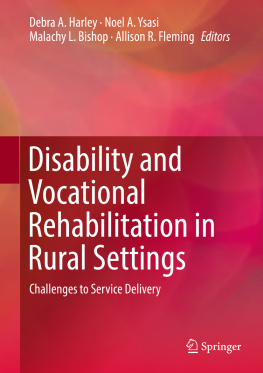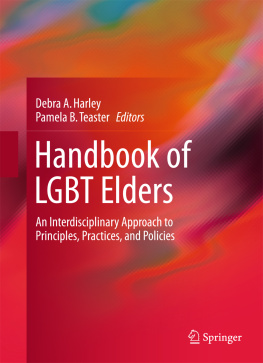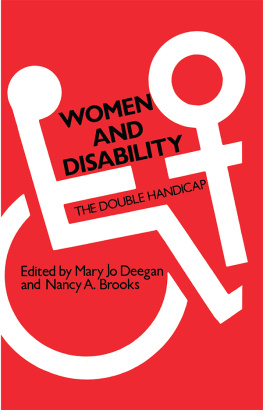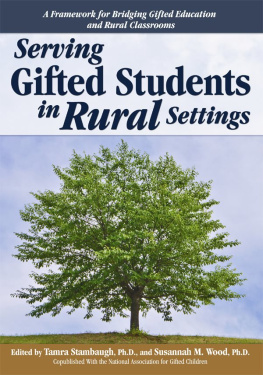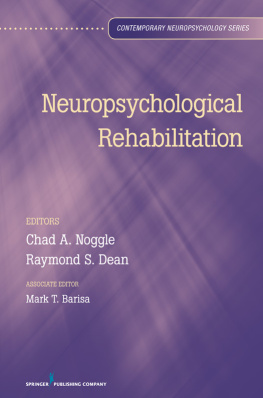Debra A. Harley - Disability and Vocational Rehabilitation in Rural Settings: Challenges to Service Delivery
Here you can read online Debra A. Harley - Disability and Vocational Rehabilitation in Rural Settings: Challenges to Service Delivery full text of the book (entire story) in english for free. Download pdf and epub, get meaning, cover and reviews about this ebook. City: Cham, year: 2018, publisher: Springer International Publishing, genre: Politics. Description of the work, (preface) as well as reviews are available. Best literature library LitArk.com created for fans of good reading and offers a wide selection of genres:
Romance novel
Science fiction
Adventure
Detective
Science
History
Home and family
Prose
Art
Politics
Computer
Non-fiction
Religion
Business
Children
Humor
Choose a favorite category and find really read worthwhile books. Enjoy immersion in the world of imagination, feel the emotions of the characters or learn something new for yourself, make an fascinating discovery.
- Book:Disability and Vocational Rehabilitation in Rural Settings: Challenges to Service Delivery
- Author:
- Publisher:Springer International Publishing
- Genre:
- Year:2018
- City:Cham
- Rating:5 / 5
- Favourites:Add to favourites
- Your mark:
- 100
- 1
- 2
- 3
- 4
- 5
Disability and Vocational Rehabilitation in Rural Settings: Challenges to Service Delivery: summary, description and annotation
We offer to read an annotation, description, summary or preface (depends on what the author of the book "Disability and Vocational Rehabilitation in Rural Settings: Challenges to Service Delivery" wrote himself). If you haven't found the necessary information about the book — write in the comments, we will try to find it.
Disability and Vocational Rehabilitation in Rural Settings: Challenges to Service Delivery — read online for free the complete book (whole text) full work
Below is the text of the book, divided by pages. System saving the place of the last page read, allows you to conveniently read the book "Disability and Vocational Rehabilitation in Rural Settings: Challenges to Service Delivery" online for free, without having to search again every time where you left off. Put a bookmark, and you can go to the page where you finished reading at any time.
Font size:
Interval:
Bookmark:
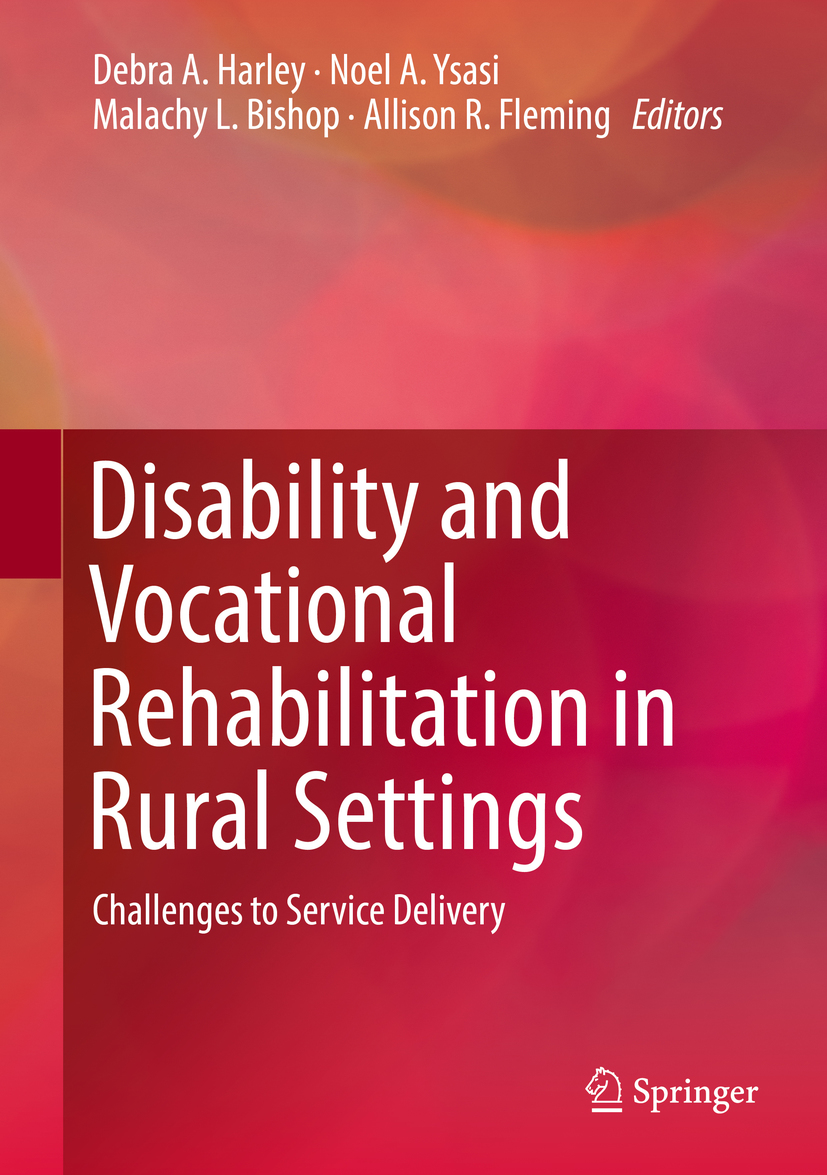

This Springer imprint is published by Springer Nature
The registered company is Springer International Publishing AG
The registered company address is: Gewerbestrasse 11, 6330 Cham, Switzerland
Disability and Vocational Rehabilitation in Rural Settings is an exceptionally timely, unique, and comprehensive body of work that was created to ultimately help persons with disabilities and their family members living in underserved and rural geographic areas of the United States as well as internationally. This text brings renewed interest to the complex interplay of the unique cultural differences that challenge persons with disabilities who are disadvantaged on so many different levels politically and economically, especially in mental and physical healthcare, accessibility to services, and government entitlement programs that assist individuals and families transitioning in and out of poverty. Counselor educators and researchers, preprofessional rehabilitation counselors, and others in the related counseling professions will easily recognize this material as a highly respected body of work. Clearly, this text has been handcrafted by a group of expert authors that have a unique point of view to offer the rehabilitation counseling and related counseling professions.
Indeed, this text brings new meaning to older constructs such as the war on poverty and health disparities. This authoritative source enhances the renewed interest in the complex interplay of issues related to poverty and how this cycle involves multiple dimensions such as social, cultural, familial, and economic. Today, the consequence and impact of poverty on vulnerable populations is far-reaching and multidimensional. Poverty in rural America transcends individuals mental and physical health conditions, educational and career opportunities, financial stability, and many other life areas which impacts everyone.
One of the unique aspects this comprehensive body of work offers is the careful attention given to the widespread problem of poverty in vulnerable populations, within different cultural groups in the United States as well as internationally. Moreover, this work extends beyond a statement of the problem approach. It offers guidelines and solutions for increasing coping and resiliency skills, capacity building, and educational training approaches that have shown to positively impact rural communities and groups of individuals with disabilities.
The effects of poverty are most harmful to those most vulnerable which overpoweringly include children, older adults, and people with disabilities. The condition of poverty is particularly worrisome for persons with disabilities where almost 22% live in poverty, compared to 13% of those without disabilities. Persons with chronic and persistent health conditions require greater financial support and access to healthcare than those without such financial constraints or healthcare issues. This body of work makes it clear that the implication for living in poverty, particularly in rural and underserved areas geographically, is that one is at risk in so many different life areas. Overall, the devastating consequences of poverty itself may be reflected in poverty of the mind, body, and spirit.
Disability and Vocational Rehabilitation in Rural Settings is extraordinary because it offers much more than a review of the literature and discussion of issues related to poverty and social justice. Such limited constructs do not translate well into our twenty-first-century political and economic environments. Thus, readers will find that the material is comprehensive in nature, practical, and particularly functional for counselor educators, researchers, practitioners, as well as preprofessional counselors in the helping professions. It offers a very close, up-front, personal, and experiential account of the problems and solutions for rehabilitation counselors and other related helping professions providing services to persons with disabilities in rural settings. The expert authors who embody this work understand the critical mass that impacts persons in poverty from the medical, physical, vocational, psychosocial, emotional, spiritual, and cultural perspective.
One of the most valuable lessons offered in Disability and Vocational Rehabilitation in Rural Settings highlights the delicate balance of providing services that are both culturally sensitive and culturally appropriate yet can be offered within the boundaries of certain governmental programs and policies that determine eligibility and assistance. The chapters in this unique work provide an in-depth discussion that can be used as a primary resource to educate, inform, and advocate reality-based, solution-focused, and culturally relevant approaches rooted in cultural empathy.
I started my own career at a community-based rehabilitation center (sheltered workshop) around 1979 in Murphysboro, IL, a small rural town in Southern Illinois close to the border of Kentucky and Missouri. Besides doing work adjustment training, job placement activities, and job coaching with these clients, I also drove the bus to pick them up for work in the morning and drop them off at the end of the day. I really got to know their family members and the psychosocial challenges of individuals with mental and physical disabilities living in rural America. This was my introduction to working with people who had a variety of medical, physical, developmental, neurocognitive, psychiatric, and chronic health conditions that were disabling. I remembered this as a very rewarding opportunity that helped launch my career, which has spanned over 30 years. Metaphorically, driving the short bus placed me in the position of leadership, guiding people to find their way through work, education, and career opportunities and then independent or support living arrangements. I have learned some valuable lessons living and working in this small rural community because it reflected the content in this volume. This work provides a valuable resource to the reader that reflects my own experiences working with salt-of-the-earth people who have come from humble beginnings.
Font size:
Interval:
Bookmark:
Similar books «Disability and Vocational Rehabilitation in Rural Settings: Challenges to Service Delivery»
Look at similar books to Disability and Vocational Rehabilitation in Rural Settings: Challenges to Service Delivery. We have selected literature similar in name and meaning in the hope of providing readers with more options to find new, interesting, not yet read works.
Discussion, reviews of the book Disability and Vocational Rehabilitation in Rural Settings: Challenges to Service Delivery and just readers' own opinions. Leave your comments, write what you think about the work, its meaning or the main characters. Specify what exactly you liked and what you didn't like, and why you think so.

